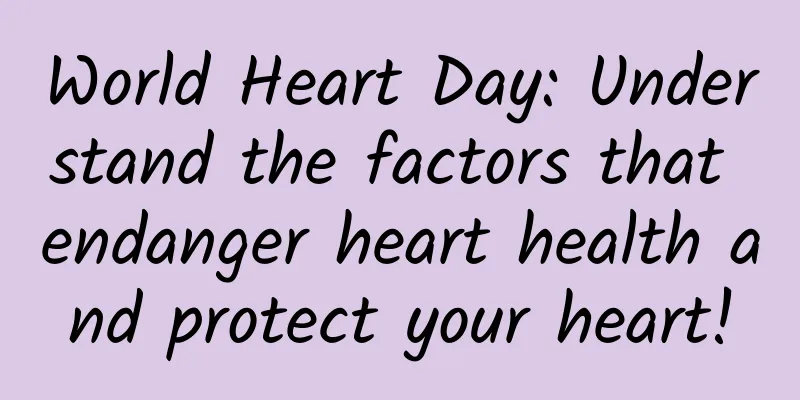Do you know? Open the door┋Loss of appetite, be careful you may have liver cancer!

|
Experts in this article: Liu Jiang, director of the Oncology Department of the People's Hospital of Xinjiang Autonomous Region, chairman of the Health Science Popularization Professional Committee of the Xinjiang Medical Association, chief science communication expert of the autonomous region, national health science popularization expert, member of the Capacity Building and Continuing Education Oncology Committee of the National Health Commission, and member of the Science Popularization Branch of the Chinese Medical Association. April 15-21 every year is the "National Cancer Prevention and Control Publicity Week". The theme of the 2022 "National Cancer Prevention and Control Publicity Week" is: Early Action for Cancer Prevention and Control According to data from the World Health Organization, 20 million people worldwide were diagnosed with cancer in 2021, and about 10 million people died from cancer. Why do people get cancer? There is a gene in human genes that we call proto-oncogene. It does not have a carcinogenic effect before being activated. Viral infection, radiation, pollution, emotional and psychological disorders, unreasonable diet, smoking and other internal and external factors can activate the proto-oncogene and make it carcinogenic and ultimately cause the body to suffer from cancer. Is cancer really so terrible that we can do nothing about it? The answer is no! The World Health Organization has confirmed that 1/3 of cancers are preventable and 1/3 of cancers are curable. People can prevent 30%-50% of cancers by staying away from tobacco, eating a healthy diet, exercising, and getting immunizations. Please remember the eight major cancer danger signs: Cough, hemoptysis, chest pain --- early warning signs of lung cancer Early lung cancer often has no obvious symptoms. If you often experience symptoms such as irritating dry cough, blood in sputum, chest pain, fever, shortness of breath, etc., you should be careful as this may be an early sign of lung cancer. Upper abdominal pain and loss of appetite--- early danger signs of gastric cancer More than 70% of gastric cancer patients have no obvious symptoms in the early stages. Some patients gradually develop upper abdominal pain, acid reflux, loss of appetite and other symptoms, most of whom think they are chronic gastritis and ignore them. Bloody stools: an early warning sign of colorectal cancer Some colorectal cancer patients will experience loss of appetite in the early stages. As the tumor continues to develop, symptoms include changes in bowel habits, abdominal pain, bloody stools, and weight loss. Right upper abdominal pain: early warning sign of liver cancer More than half of liver cancer patients are diagnosed in the late stage. Pain or discomfort in the right upper abdomen is often the first symptom of liver cancer. In the later stages, symptoms such as abdominal distension, loss of appetite, abdominal masses, jaundice, and weight loss may gradually appear. Choking or foreign body sensation when swallowing: early warning signs of esophageal cancer In the early stages, patients with esophageal cancer often experience discomfort behind the sternum, choking when swallowing, and a foreign body sensation. Some patients even have similar symptoms for several years. Breast lumps: early warning signs of breast cancer A painless, progressively growing lump in one breast is the most common first symptom of breast cancer. Tumor lesions may cause symptoms such as flat nipples, inverted breasts, and enlarged axillary lymph nodes. Abdominal pain and jaundice: early warning signs of pancreatic cancer Pancreatic cancer patients often seek medical treatment due to jaundice, which develops to a certain extent and will cause symptoms such as abdominal pain, upper abdominal distension, and weight loss. Bleeding after intercourse: an early warning sign of cervical cancer Cervical cancer is common in women over 40 years old. Patients with early cervical cancer often experience bleeding after intercourse, increased vaginal discharge, lower abdominal distension and other discomfort symptoms. 10 cancer prevention tips to remember 1. Control your weight Keep your body mass index (BMI) between 18.5-23.9. 2. Exercise more You should increase physical exercise and avoid sitting for long periods of time. It is recommended that you walk 6,000 steps a day or do other exercises equivalent to the energy consumption of walking 6,000 steps in addition to your daily work and life. Studies have shown that people who do at least 30-60 minutes of moderate to high-intensity physical exercise every day have a lower risk of cancer, especially breast cancer and colon cancer. 3. Eat a healthy diet It is recommended that everyone eat dairy products, soybeans or their related products every day, consume fish, poultry, and eggs in reasonable amounts, eat more fresh vegetables and fruits, eat mainly cereals and eat more potatoes. 4. Cancer prevention physical examination Conduct cancer prevention physical examinations scientifically. Cancer prevention physical examinations are physical examinations for common cancers based on cancer risk assessments. Knowing your own cancer risk, you can detect early cancer or precancerous lesions through correct tumor screening and conduct early intervention. 5. Limit red and processed meat intake Bacon, ham, sausages and hot dogs are all listed as Class 1 carcinogens by the World Health Organization. Weekly red meat intake should be limited to 500 grams. Eating processed meat increases the risk of colorectal cancer by 18%. People should choose fresh meat and choose parts with low fat content. 6. Dietary supplements are not recommended for cancer prevention For healthy people, it is best to address nutrient deficiencies through a diet rich in dietary nutrients, and dietary supplements should only be considered in certain specific circumstances. For healthy people, taking dietary supplements to prevent cancer is a costly and thankless task. 7. Limit alcohol intake A large amount of data has confirmed that drinking is closely related to an increased risk of various cancers, including colorectal cancer, breast cancer, liver cancer, and gastric cancer. It is recommended not to drink as much as possible. If you have to drink, men should not consume more than 20-30g of alcohol per day, and women should not consume more than 10-15g. 8. Eat less salt Avoid or eat less salted or salty foods, and avoid using salt to preserve foods. There is evidence that salt and pickled foods are likely to cause stomach cancer. 9. Breastfeeding The World Health Organization recommends that newborns be exclusively breastfed. Breast milk is rich in immunoglobulins and is the baby’s “first dose of vaccine.” In addition, breastfeeding also helps mothers prevent breast cancer. 10. Optimistic attitude A good attitude is a good medicine to prevent cancer and even all diseases. A positive attitude will keep you in a normal and reasonable state of life. Learn to stay optimistic and cheer up. Be good at self-comfort and self-liberation. Avoid impatience, anger or depression. |
Recommend
What causes follicular atrophy? These are the culprits
For some women, their follicles will shrink inste...
What kind of tea should women drink for better health effects
The benefits of drinking tea for women are self-e...
Intestinal flora and tumors: a game in the microscopic world
Author: Wang Yu, attending physician of Changzhi ...
Castration, sex change... "drug girl" trapped in a man's body
In this world, besides men and women, there is al...
What to do if you get mold during pregnancy
If a woman has any abnormal physical symptoms dur...
Can postpartum women eat sea cucumbers?
Song Xiaobao's "Sea Cucumber Fried Noodl...
Did you know? Opening the door can be fatal in serious cases. How can we prevent salmonella during the Chinese New Year?
Written by : Li Caihong, Workplace: Urumqi First ...
Will it be painful after the abortion anesthetic wears off?
Unexpected pregnancy is a very common phenomenon ...
What is the cause of pain in the mother's body?
Most mothers thought that their bodies would be m...
How to take screenshots on VIVO phones? What is the shortcut key? How to turn off the voice mode without unlocking on VIVO phones?
Recently we have been researching and sharing tut...
Can moxibustion treat infertility?
Many people know that moxibustion can regulate qi...
Will there be leucorrhea as a symptom before menstruation?
Women will have leucorrhea secretion before menst...
The difference between fake and real accessory breasts
True and false accessory breasts are two differen...
What are the 10 beautiful sentences about the Mid-Autumn Festival? What are the songs about the Mid-Autumn Festival?
On the night of Mid-Autumn Festival, the moon is ...
What are the treatments for mastitis?
When I first started puberty, my mom made me pay ...









